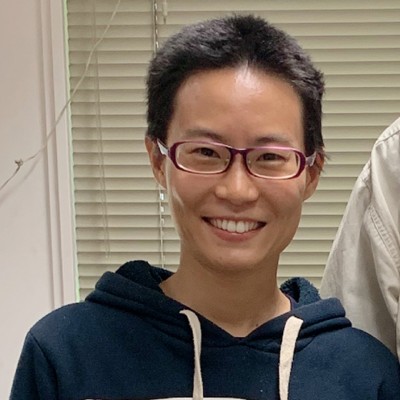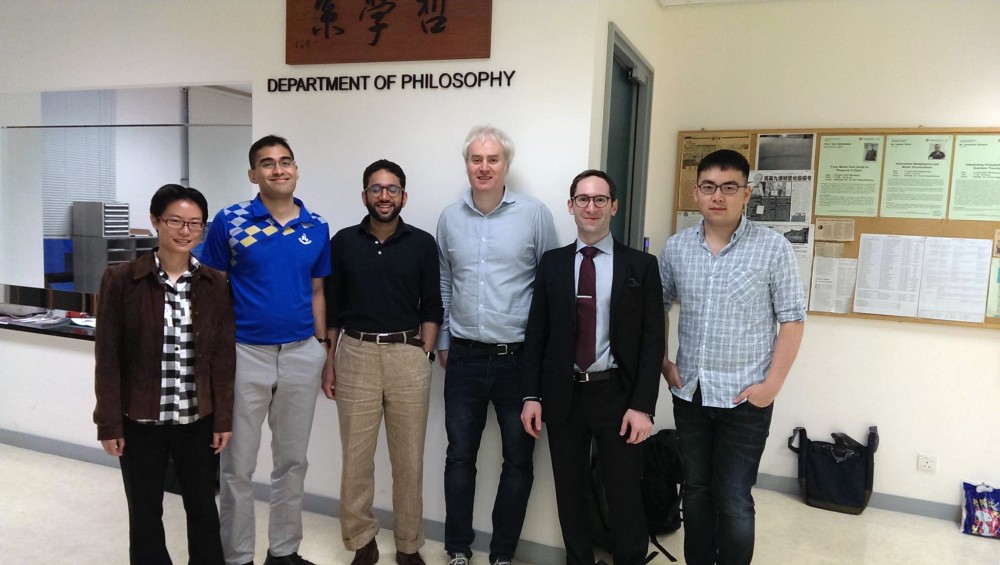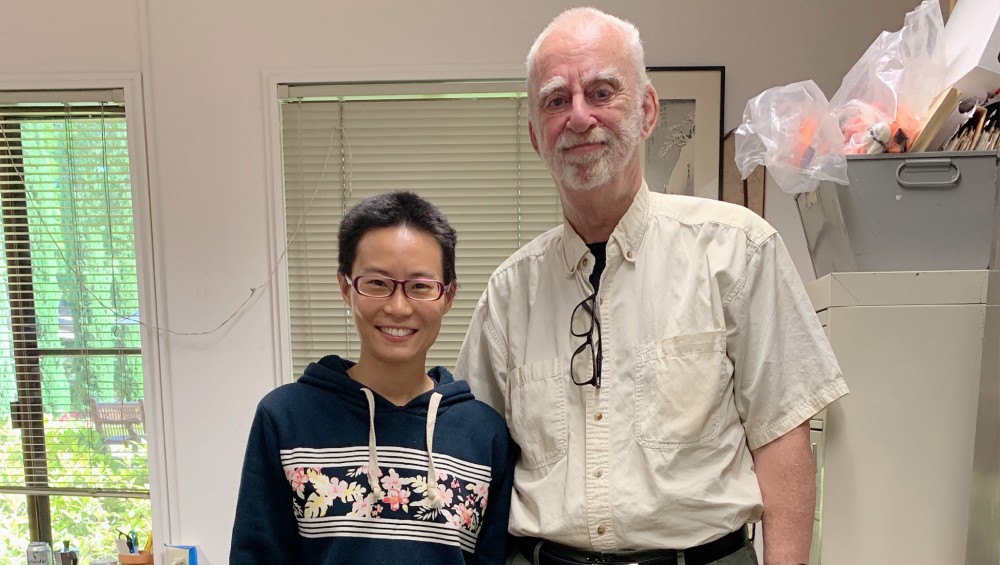
Dr Jenny Hung
Finding answers to eternal questions

Lingnan Faculty and Dr Jenny Hung at Lingnan's Department of Philosophy
As a postgraduate student working towards a first PhD in nanophysics, Jenny Hung was also intrigued by some of the older, eternal themes her scientific research inevitably prompted.
Her thoughts would turn to fundamental questions about how and when the universe was formed and the basis of existence. And, in due course, this led to a deeper interest in other conundrums which have exercised philosophers and thinkers through the ages: whether humans have souls, why we are here, and if we can look forward to an afterlife.
“I had long been fascinated by philosophy and, one day, I came across The Conscious Mind, a book by David Chalmers, who works on fundamental problems in a critical, careful and logical way,” Hung says. “That sparked an immediate urge in me to learn more about this field in a formal setting. I applied to a dozen universities that provide solid training in analytical philosophy and was accepted for several prestigious PhD programmes offering full scholarships. However, only Lingnan University encouraged me to work on the topic which most fascinated me, rather than on the philosophy of science, which the others suggested. So, I decided to follow my passion at Lingnan.”
The thesis topic she ultimately settled on was “What am I? The Ontology of Subjects of Experience”, which allowed her to examine the shortcomings of current philosophical theories and develop a better account of the self.
This started from the position that in the contemporary, analytic tradition, many are attracted to a naturalistic, scientific ontology. Such a viewpoint leads them to believe in a materialistic personal ontology that matches the success of scientific discovery.
“They think that we are material objects, but their views do not match our intuition regarding survival,” Hung says. “Therefore, my research on personal ontology investigated our nature and persistence over time. It discussed the possibility of an afterlife and the existence of the soul. These subjects significantly affect how one chooses a religion and perceives the value of life. There are also consequences for a variety of other fields, such as the nature and desirability of immortality, and issues in applied ethics like the permissibility of abortion and euthanasia.”
Over the centuries, philosophers have come up with any number of possible answers to the “What am I?” question. These include I am a person, a mind, a human animal, a soul, part of a human being, I do not exist - and even more.
After extensive research and due consideration, Hung proposed the “conscious subject view”. According to this, the individual is a subject of experience, a mental entity whose essential property is to be conscious.

Professor John Perry and Dr Jenny Hung at Stanford University
To back this up, she provided two main arguments. One was based on an exploration of egoistic concern, the other on the intuition that we persist as subjects of experience, and that there is a non-reducible, non-qualitative fact, known as haecceity, which is responsible for this.
“Early on, I found it quite hard to deepen my arguments for the haecceity of subjects,” says Hung, who completed her PhD in philosophy in 2018 and is currently assistant professor in the Division of Humanities at the Hong Kong University of Science and Technology (HKUST). “There is a huge literature on the metaphysics of modality and conceivability, and it involves a lot of technical issues. To cope with this difficulty, I discussed my research with nearly all the professors at Lingnan and learned a great deal from them.”
In particular, she worked closely with her chief supervisor, Professor Andrea Sauchelli, an expert in personal identity and the self, who was always ready to offer guidance and motivation as and when necessary.
Co-supervisor Professor Darrell Rowbottom was an inspiring teacher, as was the department head at the time, Professor Jiji Zhang, who willingly shared both general wisdom and specific insights. And especially useful, as the thesis took on its final shape, were the detailed comments and constructive support of Professor Dan Marshall, who came across as “super clever” and enthusiastic.
As part of her programme, Hung also took the chance to spend 18 months visiting the University of Texas at Austin to audit graduate classes and acquire more of the modal logic and metaphysical “tools” needed to test and arrange her own thoughts and theories.
The trip was made possible by a Hong Kong government Reach Out Award, which supplemented generous financial support otherwise received via the HKPFS (Hong Kong PhD Fellowship Scheme).
“To do analytical philosophy well, you need a clear, critical and logical mind, as well as the ability to read, understand and summarise texts at a fast pace,” says Hung, who has since published a number of well-regarded papers based on her findings. “Most important, though, is a passion for the subject.”
Recently, her research has focused on personal identity, the self, Buddhism, and contemporary Chinese philosophy. She also teaches logic, metaphysics and the philosophy of science, but often thinks back to the quiet, contemplative environment enjoyed during her four years on campus.
“I always tell philosophy majors at Lingnan they should realise how fortunate they are to be taught by such a brilliant team of scholars.”

